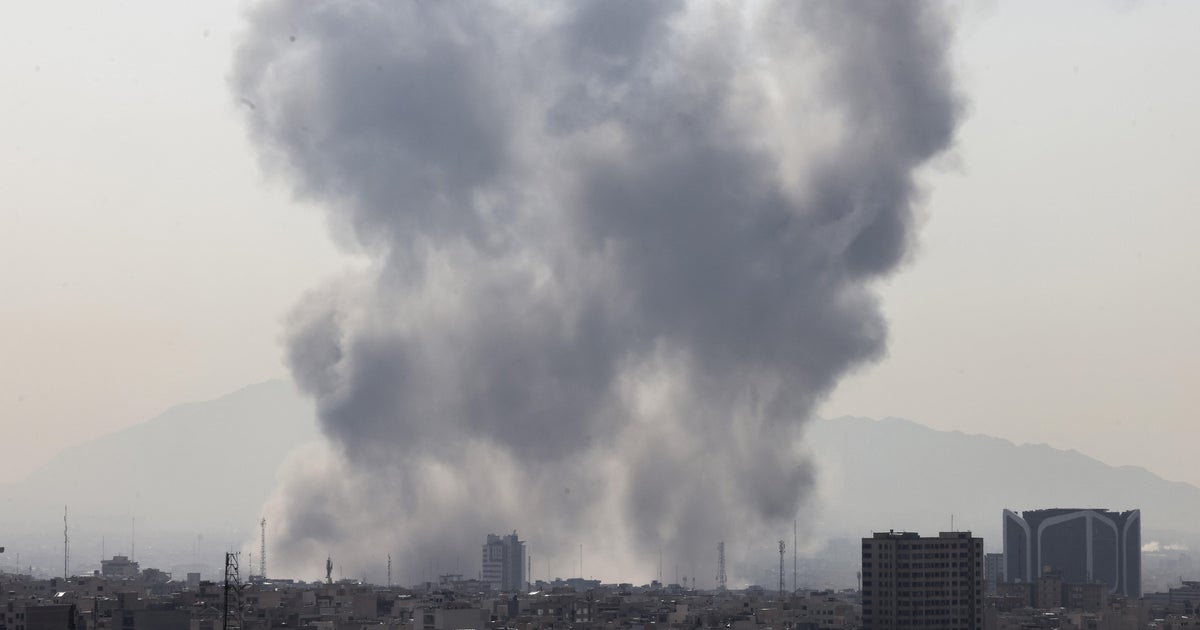More leaked documents reveal U.S. insight into Russian infighting, threat from China, candid views of allies
Nearly a dozen additional leaked U.S. documents include new details about Russian infighting over the war in Ukraine, concern that the United Nation's chief has been too "accommodating" toward Moscow, pressure from Beijing on an Arab ally of the U.S. and Chinese technology threatening to "hijack" Western satellites and infiltrate Defense Department supply chains.
CBS News has reviewed 11 new documents that are separate from an initial tranche of 53 pages that surfaced last week. Hundreds of documents have been released according to media reports — the Washington Post said it has reviewed about 300. The latest documents reviewed by CBS News came from the same server on the gaming site Discord, where the other 53 had initially appeared. Some of the 11 documents appear to have been dated Feb. 28.
CBS News has not independently verified the authenticity of the documents, but they closely resemble others acknowledged by U.S. officials to be real. The records show the breadth of the U.S. intelligence community's reach around the world.
Russian infighting
One document details internal strife in Russia about the number of troops killed. Officials at Moscow's Federal Security Service (FSB) accused Russia's Ministry of Defense of "obfuscating" Russian casualties in Ukraine by excluding deaths from the National Guard, Wagner Group, Chechen mercenaries and other unofficial organizations. The document says the FSB claimed the actual figure of Russian dead and wounded was closer to 110,000, a far higher figure than what has publicly acknowledged by the Kremlin. The most recent update from the Russian Ministry of Defense, from September 2022, said only 5,937 Russian soldiers had been killed in combat.
The entry observes that the dispute highlights the "continuing reluctance of military officials to convey bad news up the chain of command."
Another document describes Russian President Vladimir Putin's efforts to resolve a dispute between his military leaders and Wagner Group leader Yevgeny Prigozhin who had publicly complained that Moscow had not provided enough ammunition to his men fighting in Ukraine.
Details about discord among the Russians included in this set of documents were first reported by The Wall Street Journal and The New York Times.
Russian "protest training"
Another document reveals a private Russian military firm, "Vegacy [Strategic] Services," in coordination with a Wagner-linked group known as "The Farm," attempted to give 150 people "protest training" in Turkey in February. They were then intended to be sent to Moldova as part of Moscow's ongoing efforts to destabilize the country.
The training program in Turkey had to be canceled, however — Turkish intelligence had restrictions in place on Russian males, forcing the firm to relocate to Russia for the one- to two-month training. Trainees were to be instructed on starting protests, first aid and "psychological training on what to do if caught."
Likely Chinese "hijack" threat against Western satellite networks
A paragraph extracted from another document says the U.S. intelligence community assesses China is "probably developing cyber attack capabilities to deny, exploit and hijack" Western satellite links and networks and potentially seize control of a satellite.The Defense Department has previously discussed China's efforts to attack U.S. satellites publicly but have not described them as hijacking attempts.
Chinese risk to Defense Department supply chains
One document says that Chinese state-owned surveillance equipment manufacturer Hikvision is disguising its products, which are banned in the U.S., through its resellers to government suppliers, putting the Department of Defense's own supply chains at risk of compromise.
Jordan wavering on decision not to use Huawei for 5G?
Another describes Crown Prince Hussein, who is overseeing Jordan's transfer to wireless 5G technology, as "wavering" on assurances to Washington that it would avoid Chinese telecom giant Huawei for its 5G networks over concerns that Beijing might retaliate against the Jordanian economy.
Surveillance of U.N. secretary general
Two documents detail the private reactions of U.N. Secretary General Antonio Guterres and indicate U.S. surveillance of his communications, as first reported by BBC. One observed that Guterres in February highlighted his own efforts to boost Russia's ability to export to Russian Foreign Minister Sergei Lavrov in a bid to urge Moscow to accept renewal of the U.N.'s Black Sea Grain Initiative, "even if that involves sanctioned individuals and entities." The other says Guterres had "reveled in what he called a successful AU (African Union) Summit," and implies that any success he had with efforts to reconcile leaders of DRC, Rwanda and Kenya were "perceived" by the UN leader rather than real.
The Department of Defense would not authenticate the documents, but these latest ones appear to be an extension of the initial batch that led to the Department of Justice's criminal investigation into unauthorized disclosures of highly sensitive information. Defense Secretary Lloyd Austin said the Pentagon is focused on documents "from February 28 and March 1."
Federal agents on Thursday arrested a 21-year-old member of the Massachusetts Air National Guard in connection to the investigation into the documents' leak. Jack Teixeira was taken into custody by the FBI and will appear in federal court in Massachusetts, Attorney General Merrick Garland announced Thursday.
U.S. intelligence agencies including the Office of the Director of National Intelligence, National Reconnaissance Office, CIA and NSA have declined to comment on the leaked documents, referring inquiries to the Justice Department.
President Biden said Thursday morning in Ireland that he was "not concerned about the leak. I'm concerned that it happened, but there's nothing contemporaneous that I'm aware of that is of great consequence."




